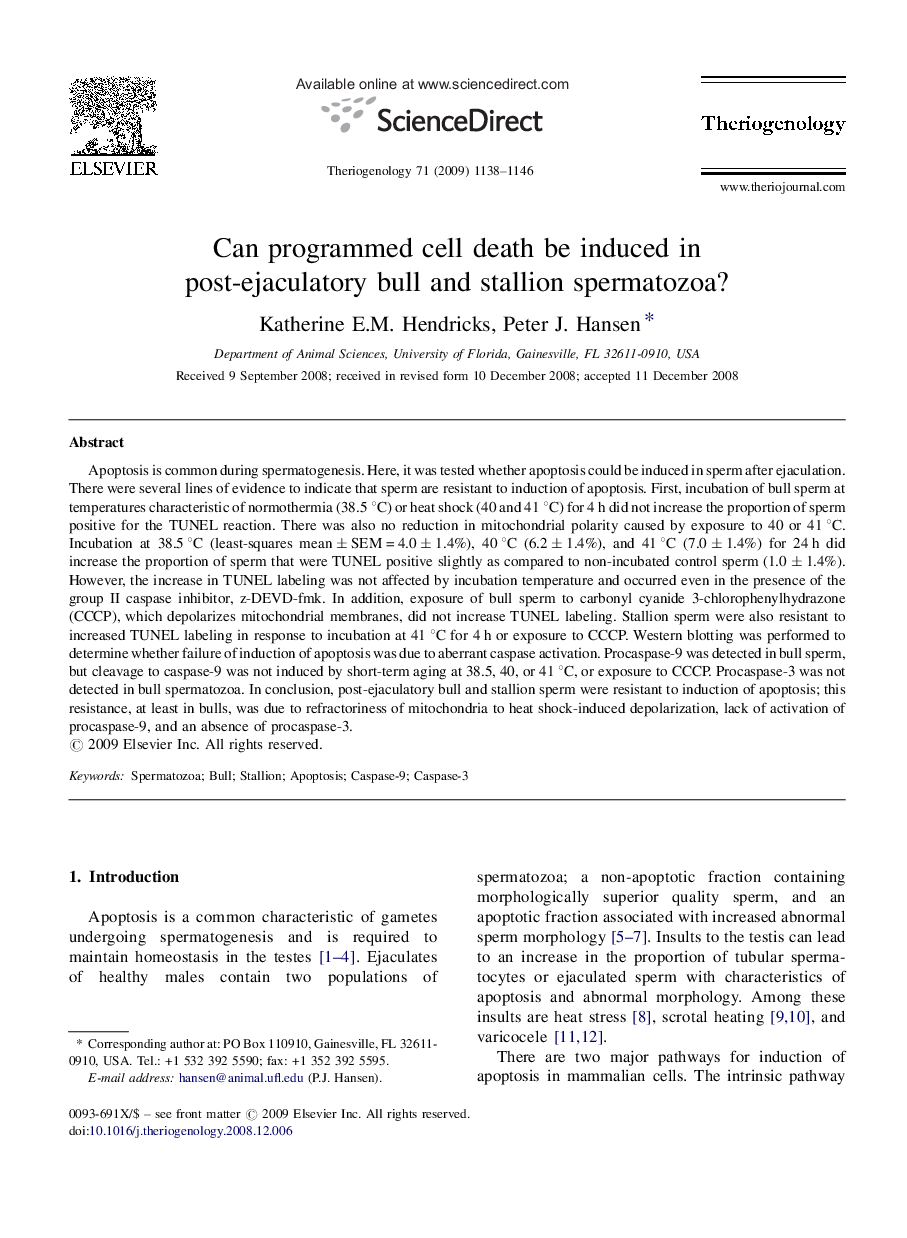| کد مقاله | کد نشریه | سال انتشار | مقاله انگلیسی | نسخه تمام متن |
|---|---|---|---|---|
| 2095884 | 1082140 | 2009 | 9 صفحه PDF | دانلود رایگان |

Apoptosis is common during spermatogenesis. Here, it was tested whether apoptosis could be induced in sperm after ejaculation. There were several lines of evidence to indicate that sperm are resistant to induction of apoptosis. First, incubation of bull sperm at temperatures characteristic of normothermia (38.5 °C) or heat shock (40 and 41 °C) for 4 h did not increase the proportion of sperm positive for the TUNEL reaction. There was also no reduction in mitochondrial polarity caused by exposure to 40 or 41 °C. Incubation at 38.5 °C (least-squares mean ± SEM = 4.0 ± 1.4%), 40 °C (6.2 ± 1.4%), and 41 °C (7.0 ± 1.4%) for 24 h did increase the proportion of sperm that were TUNEL positive slightly as compared to non-incubated control sperm (1.0 ± 1.4%). However, the increase in TUNEL labeling was not affected by incubation temperature and occurred even in the presence of the group II caspase inhibitor, z-DEVD-fmk. In addition, exposure of bull sperm to carbonyl cyanide 3-chlorophenylhydrazone (CCCP), which depolarizes mitochondrial membranes, did not increase TUNEL labeling. Stallion sperm were also resistant to increased TUNEL labeling in response to incubation at 41 °C for 4 h or exposure to CCCP. Western blotting was performed to determine whether failure of induction of apoptosis was due to aberrant caspase activation. Procaspase-9 was detected in bull sperm, but cleavage to caspase-9 was not induced by short-term aging at 38.5, 40, or 41 °C, or exposure to CCCP. Procaspase-3 was not detected in bull spermatozoa. In conclusion, post-ejaculatory bull and stallion sperm were resistant to induction of apoptosis; this resistance, at least in bulls, was due to refractoriness of mitochondria to heat shock-induced depolarization, lack of activation of procaspase-9, and an absence of procaspase-3.
Journal: Theriogenology - Volume 71, Issue 7, 15 April 2009, Pages 1138–1146